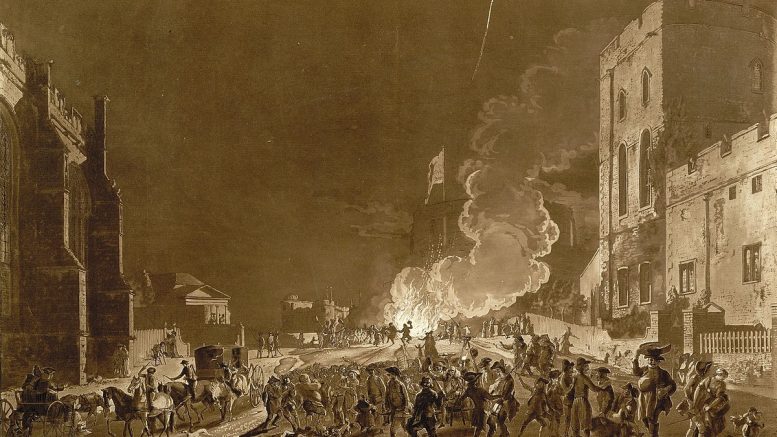Guy Fawkes Night, commonly known as Bonfire Night, is a celebration that takes place on Nov. 5.
Every British child learns at one point on their lives the rhyme: ‘Remember remember the fifth of November. Gunpowder, treason and plot. We see no reason why gunpowder treason should ever be forgot.’ So what really happened?
The tradition began with the Gunpowder Plot of 1605. Those involved, led by Robert Catesby, planned to blow up the House of Lords during the State Opening of Parliament on 5th November 1605. The Catholic conspirators’ main aim was to kill the Protestant King James, as well as other powerful figures in the Privy Council, in order to restore a Catholic monarch to the throne. The group leased an undercroft beneath the House of Lords, where Guy Fawkes was to guard the gunpowder they stored there.
On 26th October, an anonymous letter was sent to Lord Monteagle, warning him to stay away and indicating the plan to blow up parliament. Despite theories of it being a hoax, the letter was shown to King James, who ordered a search of Westminster Palace, during which the King’s men found a large pile of firewood in the undercroft beneath the House of Lords. Guy Fawkes was caught leaving the undercroft and was arrested shortly after midnight. Fawkes was then questioned and tortured over the next few days until his confession on the 7th November, implicating the five other men involved in the plot.
During his torture, Fawkes was transferred to the Tower of London, in a room which is now known as the Guy Fawkes Room. The plotters were put to trial, where the jury found them all guilty of high treason and they were executed.
On the 5th November, Londoners were encouraged to celebrate the failed attempt on the King’s life by lighting bonfires, and An Act of Parliament designated 5th November each year as a day of thanksgiving.
Fireworks accompanied the bonfires from the 1650s onward, while it became custom after 1673 to burn an effigy, which in many celebrations became the figure of Guy Fawkes.


Words and infographics: Hannah Wilson | Subbing: Michelle Del Rey

